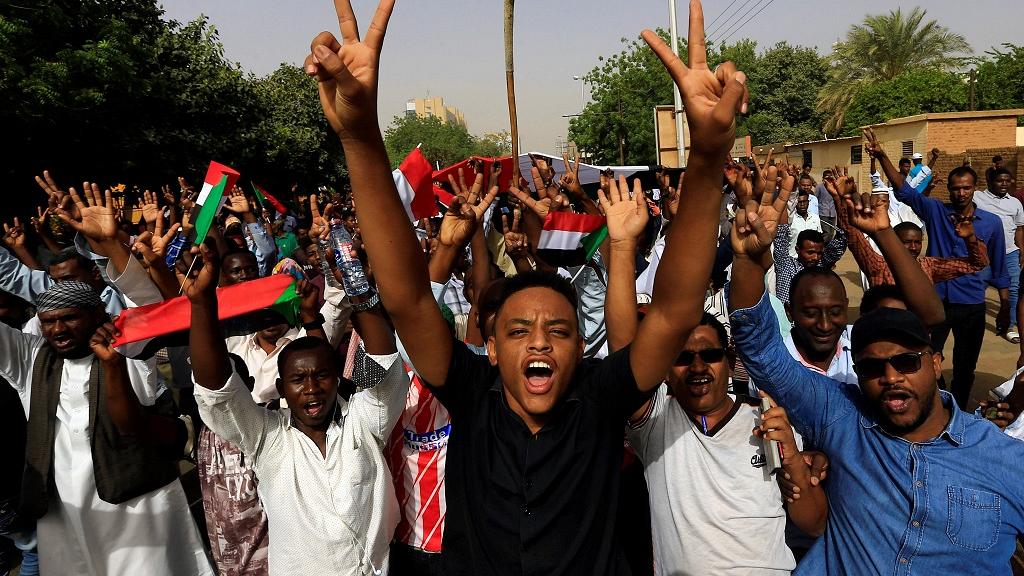
Sudan’s longtime ruler Omar al-Bashir was removed from power and arrested by the military April 11, following months of popular protests that culminated in clashes between his loyalist security branches and the military. In the prior category is the feared National Intelligence and Security Service (NISS), which two days earlier was met with resistance from army troops when it tried to us repression to clear a protest encampment outside the armed forces headquarters in Khartoum. The NISS, perhaps under pressure from the military, now says all those arrested in the weeks of protests will be released—although it did not say when. Armored vehicles from the military’s elite Rapid Support Forces have taken strategic positions around the capital. But protesters continue to fill the streets, chanting: “It has fallen, we won.” Opposition leaders are clear they will continue to oppose any attempt at military rule.
Omar Saleh Sennar, a senior member of the Sudanese Professionals’ Association, one of the main protest groups, said he expects to open negotiations with the armed forces soon: “We will only accept a transitional civilian government,” he told Reuters.
The head of the opposition Sudanese Congress Party, Omer al-Degair, said in a statement: “We reject the formation of the military council… we will remain on the streets.” He stressed the opposition’s refusal to allow the “theft of the revolution.”
Defense minister and vice president Awad Ibn Ouf appears to be in power for the moment, and announced that Bashir has been taken into custody. The constitution has been suspended, the National Assembly dissolved, and a state of emergency declared. The African Union Commission released a statement saying that a military takeover is not “the appropriate response for the challenges facing Sudan and the aspirations of its people.”
Bashir, in power since a 1989 coup, is wanted by international authorities for genocide and crimes against humanity in Darfur. “Sudan should surrender Omar al-Bashir to the International Criminal Court immediately,” said Jehanne Henry of Human Rights Watch. “Victims of the gravest crimes in Darfur should not have to wait any longer for justice.”
(Sahara Reporters, The Independent, Africa News, Al Jazeera, Sudan Tribune, Sudan Tribune, Sudan Tribune, Amnesty International, Jurist)




